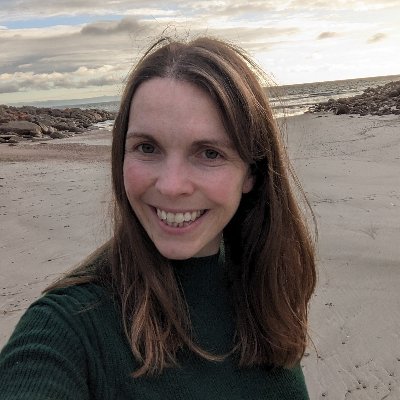
Wei Zhou
@weizhouw
Followers
909
Following
253
Media
9
Statuses
120
I develop and apply statistical and computational tools to study genetics of human diseases and traits using biobanks. Assistant Investigator @CGM_MGH
Joined October 2014
Excited to share our latest preprint introducing SAIGE-QTL, a powerful tool for single-cell eQTL analysis! Check it out here: https://t.co/53svppNTIt
#eQTL #scRNAseq #genomics (1/9)
medrxiv.org
Understanding the genetic basis of gene expression can help us understand the molecular underpinnings of human traits and disease. Expression quantitative trait locus (eQTL) mapping can help in...
2
46
131
@madduri Tutorials to run SAIGE-GPU: https://t.co/7dCr8HjEkt Docker and singularity containers for deployment on various cloud infrastructures are available.
0
4
9
Amazing collaborative efforts led by @madduri and Alexis Rodriguez. Applied to run phenome-wide GWASs in MVP, SAIGE-GPU demonstrates a critical framework for leveraging GPU resources to boost the computational efficiency of mixed model approaches in large-scale genetic studies.
Preprint from the @DeptVetAffairs collaboration with @doescience. Using supercomputers and GPUs from @ORNLComputing to accelerate analyses for biobanks with data from the Million Veteran Program @VAResearch. Joint work with @_anuragverma @weizhouw @JennyGenetics et al.
2
3
20
A shout out to our amazing team and collaborators, with special thanks to my co-developer @AnnaSECuomo! It’s been such a great pleasure working together! @masakanai @anglixue @TheXavierLab @dgmacarthur @drjosephpowell @dalygene @bmneale We invite your thoughts and feedback! (9/9)
0
0
6
With 100 CPUs, it takes < 2 days to map cis-eQTLs for 20k genes across 14 cell types. Trans-eQTL tests have much lower overhead for reading genotypes. Testing 5.3m variants for 20k genes in 3 cell types with 3625, 82,068, and 463,528 cells costs 7, 19, and 26 hrs (8/9)
1
0
2
It detected 413 trans-eQTLs through genome-wide scans in three immune cell types from OneK1K. (7/9)
0
0
2
It detected 413 trans-eQTLs through genome-wide scans in three immune cell types from OneK1K. (7/9)
1
0
1
SAIGE-QTL allows for multiple user-specified marker-level weights in rare-variant set-based tests. It identified 5,541 eGenes (2,317 unique) with rare/less frequent signals (MAF <= 5%). 483 (21%) are independent from common eQTLs in the same genes (6/9).
2
0
2
SAIGE-QTL detected 48.8% more eGenes (i.e., genes with at least one eQTL) compared to TensorQTL (17,218 vs 11,569 eGenes across all 14 cell types). (5/9)
1
0
1
Through simulations and the analysis of OneK1K cohort, including scRNA-seq data from >1.2M immune cells of 982 individuals across 14 cell types, we showed that SAIGE-QTL is well calibrated for both common and rare variants, while outperformed pseudobulk methods. (4/9).
1
0
1
SAIGE-QTL implements the Poisson mixed model efficiently, facilitating genome-wide eQTL scans for millions of cells across diverse cell types. It tests rare genetic variants' effects on gene expression through set-based tests, which are understudied in prior research. (3/9)
1
0
1
Current sc-eQTL methods often rely on the pseudobulk approach or struggle with scalability. Our tool directly models single-cell read counts and captures variability. By leveraging shared information across similar cell profiles, it boosts power to test eQTLs. (2/9)
1
0
1
Would you believe me if I told you that a single variant in a non-coding RNA explains ~0.5% of all undiagnosed individuals with neurodevelopmental disorders (NDD) in @GenomicsEngland ??? I didn’t initially either, but here is the story of RNU4-2 🧵1/9
Thrilled to share our latest discovery on a spliceosomal snRNA gene causing neurodevelopmental disorders: https://t.co/M7InIzrIuH Thank you to everyone who contributed; it’s been a phenomenal effort to collaborate with clinicians and researchers for what would help many families!
17
201
619
🌟 **Join Our Lab https://t.co/K8oVK9dddA as a Postdoc!🌟 Passionate about developing and applying novel statistical methods to study genetics of disease progression and integrating omics data? Explore exciting opportunities and apply now: https://t.co/fmRftCXAWt or email me🧬
1
33
94
Out today @Nature – our analysis of the influences of common nuclear DNA variation on mitochondrial DNA copy number and heteroplasmy across >250,000 people across two biobanks!
14
49
189
@CGM_MGH @harvardmed @broadinstitute @StanleyCenter @GlobalBiobanks @cristenw @SeunggeunL @bmneale @dalygene @XihongLin We are recruiting, so please let me know if you are interested in joining us! @CGM_MGH fosters a deeply collaborative environment, offering abundant prospects for engagement in collaboration and co-mentoring.
4
13
27
@CGM_MGH @harvardmed @broadinstitute @StanleyCenter @GlobalBiobanks @cristenw @SeunggeunL @bmneale @dalygene @XihongLin I am grateful for all the support I received from my fantastic colleagues and friends throughout this process. The number of names is too large and enumerating each would undoubtedly transform this into a substantial narrative on Twitter!
1
0
1





